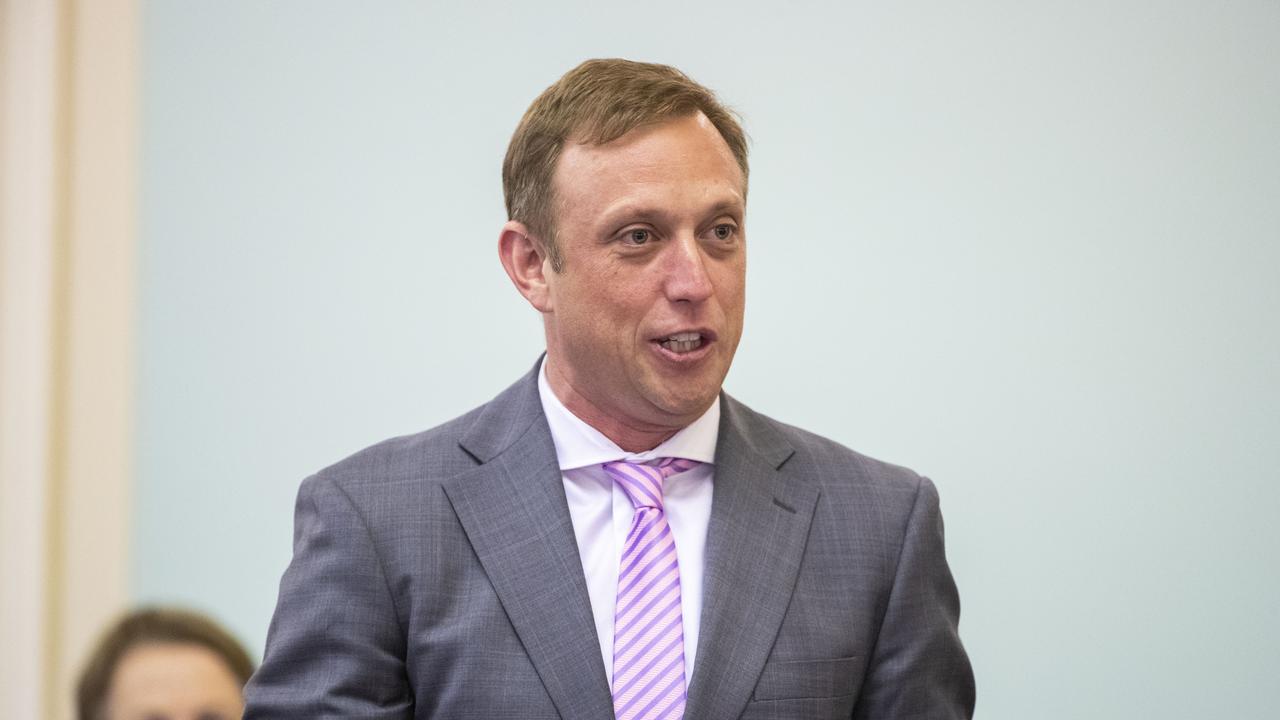Lady Flo Bjelke-Petersen: Tears and tributes at state funeral in Kingaroy
IT WAS a requiem for a lost era as much as for a grand old lady, but the message at her state funeral in Kingaroy was as direct and uncomplicated as Lady Flo herself.

QLD Politics
Don't miss out on the headlines from QLD Politics. Followed categories will be added to My News.
- Gallery: Tributes flow for Flo
- Lady Flo ‘an example to others’
- We won’t see her like again
- Flo an inspiration and a lady in every sense
IT WAS a requiem for a lost era as much as for a grand old lady, but its message was as direct and uncomplicated as Lady Flo herself.
Christianity was the central theme of the life of Lady Florence Bjelke-Petersen, and it left an indelible mark on her 97 years.
Kingaroy stood still for nearly two hours yesterday as local labourers in fluoro joined the Prime Minister, as well as premiers past and present, to give a cheerful, upbeat yet dignified farewell to one of the state’s more beloved public identities.

After the grey and ageing figures of the old ruling National Party had shuffled into Kingaroy Town Hall in the noonday heat, the three Lutheran pastors who materialised shortly after 1pm left mourners in no doubt as to the central theme of Lady Flo’s life.
Politics, family and community service all had their place, but as the Reverend Mark Doecke told the congregation, it was Christianity that shaped, guided and dominated Lady Flo’s life, and her faith never wavered.

“She was convinced God was not dead,’’ Rev Doecke said. “Her faith shaped her indelibly.’’
Former premier Rob Borbidge was there, as were Bob Katter and Howard Hobbs, who served in Sir Joh’s ministry.
Deputy Prime Minister Barnaby Joyce brought the house down with Lady Flo anecdotes, Premier Annastacia Palaszczuk announced part of Kingaroy’s new hospital would be dedicated in Lady Flo’s honour and Prime Minister Malcolm Turnbull limited himself to a brief prayer reading, thanking God for her “grace, faithfulness and service to others”.

But it was the unlikely presence of Aboriginal leader Noel Pearson – who detested the Bjelke-Petersens’ politics – that provided a powerful testament to the practical impacts of that “service to others”.
Mr Pearson said it was Sir Joh’s Christian faith which led the simple Kingaroy peanut farmer to Hope Vale – Mr Pearson’s home town – in the years following World War 11.
Aboriginal people from the region had been sent south in the war years and had wanted to return to their traditional land in the far north.

It was Sir Joh, through his work with the Lutheran Mission, who arrived in the sweltering tropics and blazed the trail to the Hope Vale, befriending Pearson’s grandfather and helping lay out the fledgling Lutheran mission.
Both Lady Flo and Sir Joh had inspired him from boyhood with their simple, Christian determination to help others, and the Lutheran Faith they embraced had become his own.

“My relationship with the Bjelke-Petersens goes beyond politics – it goes into history and it goes into religion,’’ Mr Pearson said.
For the children – Ruth, Helen, John and Meg – the 90-minute service was clearly a trial, but they handled it with grace and humour.

John, referring to the Fitzgerald Inquiry into corruption and subsequent criminal trial of his father, recalled the “storms life threw at our family’’ and how his mother’s earnest love and faith provided then all with a steadfast beacon; the grandchildren remembered a gran whose love for Cherry Ripes led to jokes she might suffer “death by chocolate’’.

Reverend Doecke revealed Lady Flo didn’t just read bibles – “she wore them out’’ – annotating them in the margins and underlining passages.
In her 1981 Bible, Philippians 2:3 had been given the full workout: “Do nothing out of selfish ambition or vain conceit. Rather, in humility, value others above yourselves.’’



